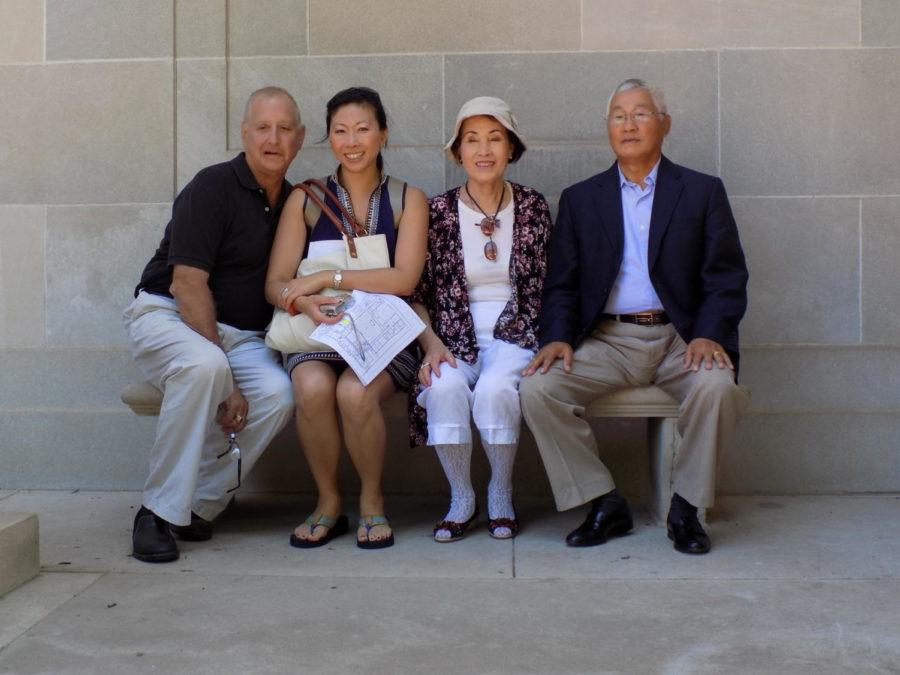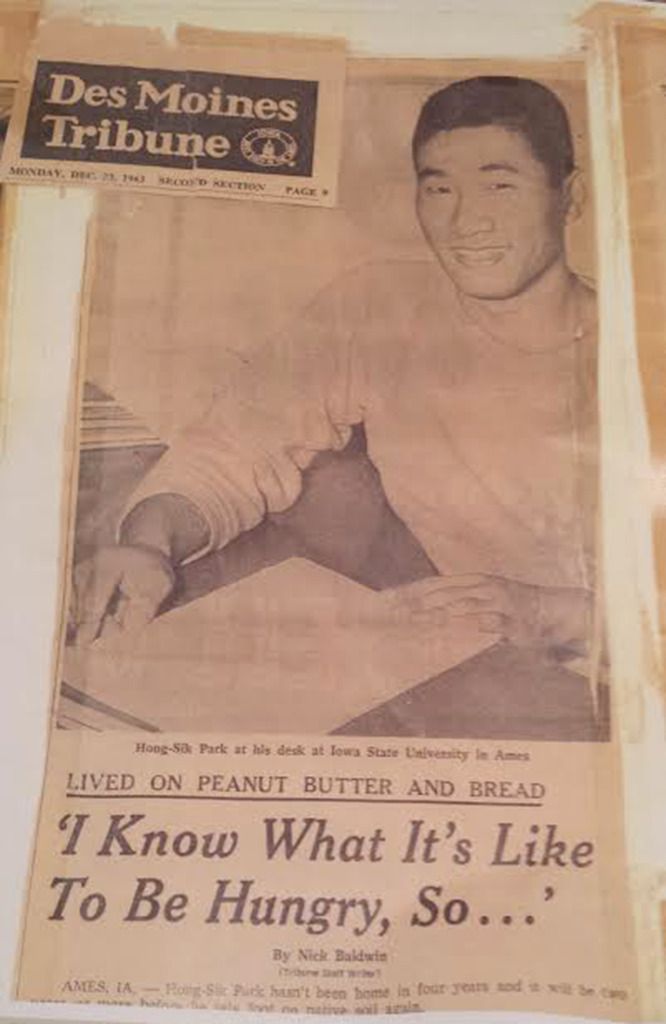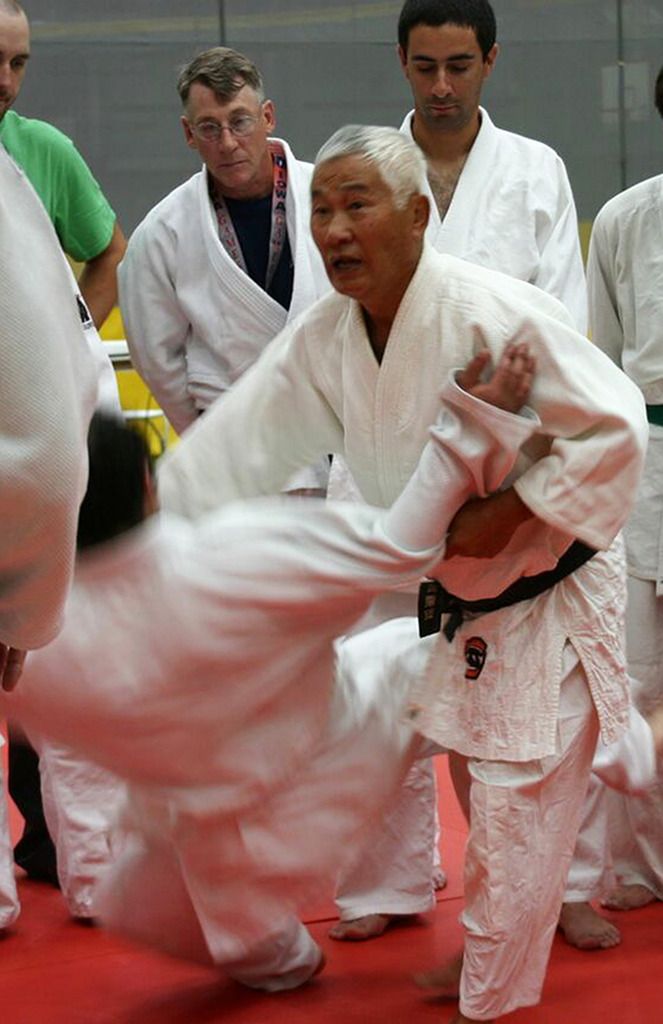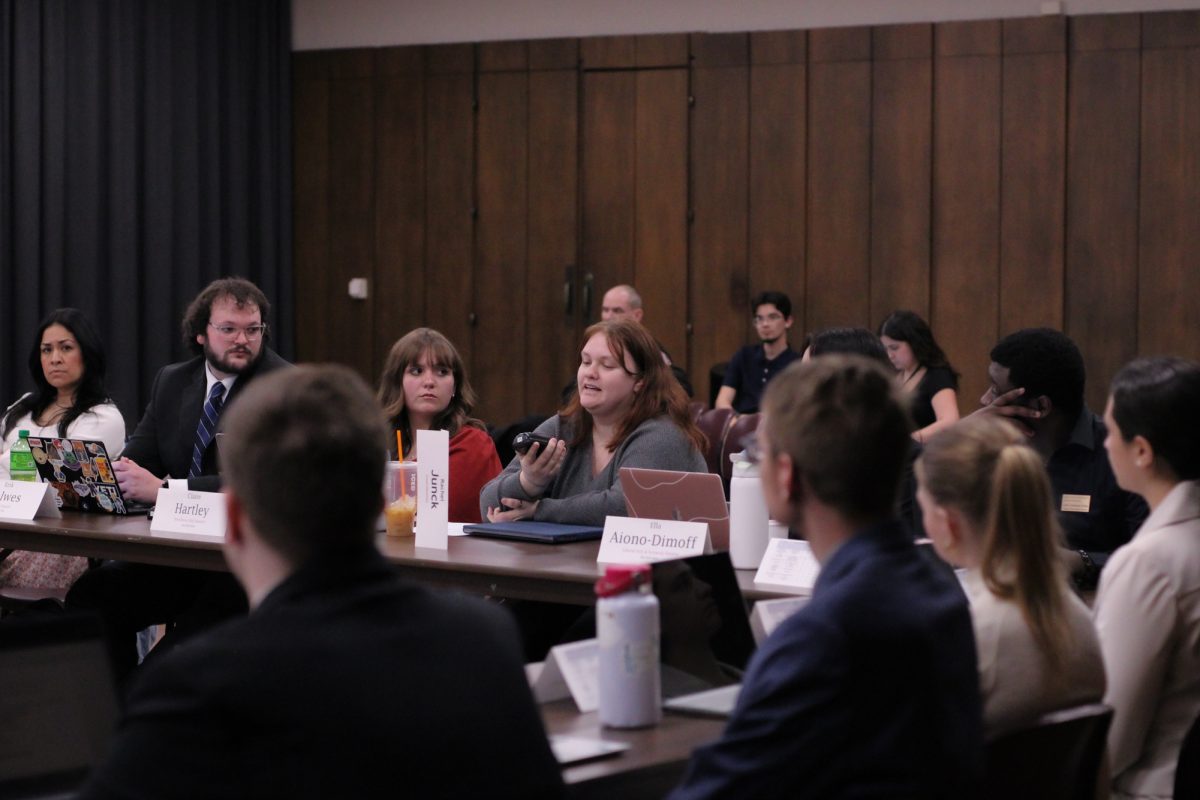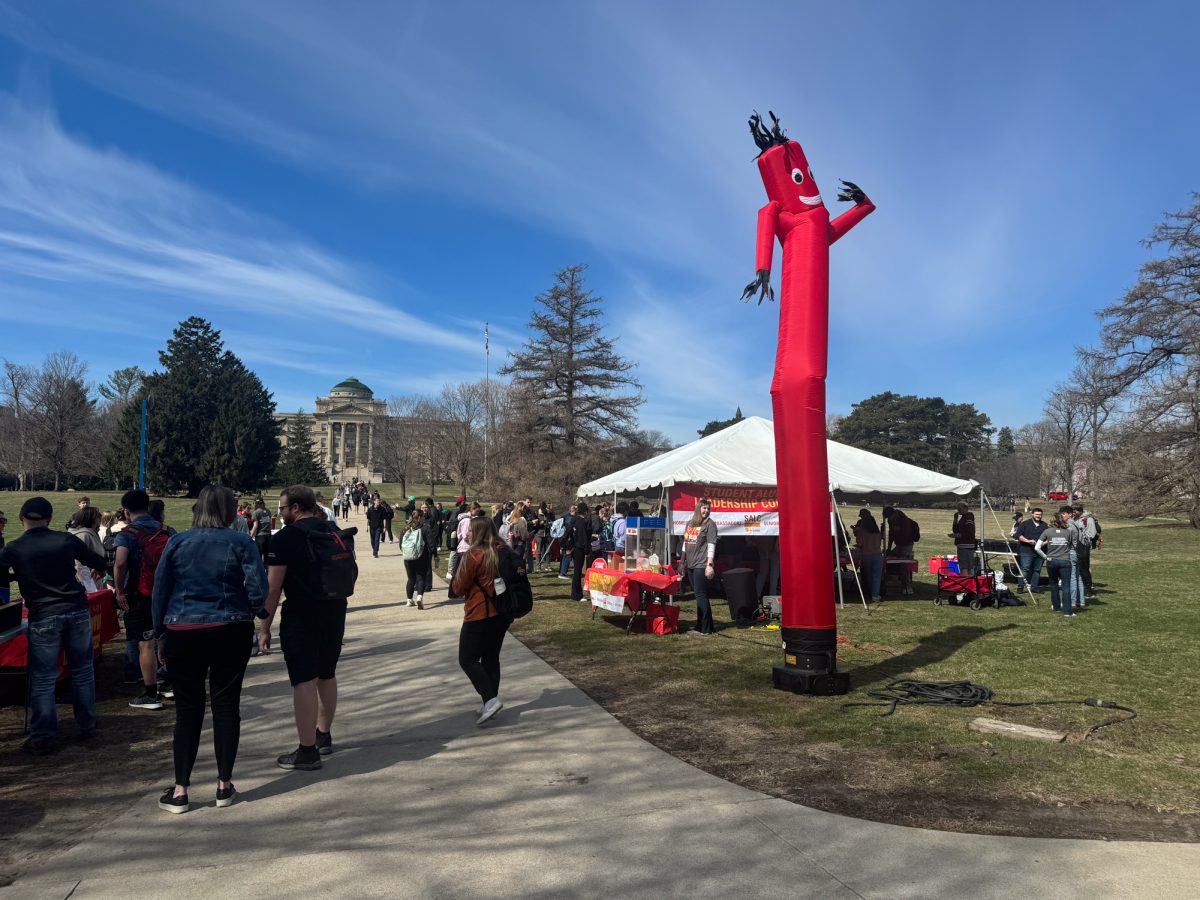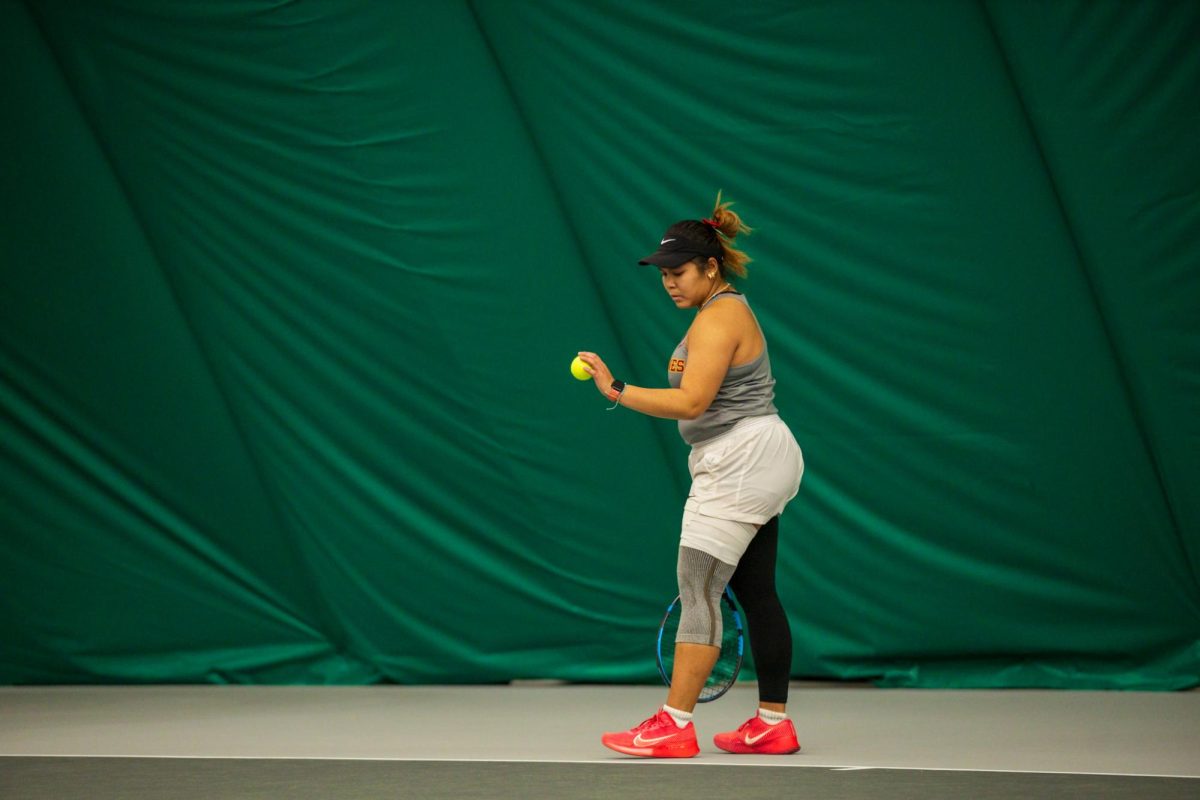Founder of ISU’s Judo Club Returns to Campus
Courtesy of Coreen Robinson/Alumni Association
Steve Wagenheim, left, Rose Park, Catherine Park and Hong Sik Park sitting in the courtyard of the Food Sciences Building at Iowa State.
July 23, 2015
Dr. Hong Sik Park came to Iowa State from South Korea in 1959 with no connections, no money and little knowledge of the English language. He left Iowa State as the founder of one of its most popular student organizations.
The 1964 alumnus, who studied agriculture and served as the first chief instructor of Iowa State’s Judo Club, was well-known by his peers for his incredible work ethic. Now 74-years-old, he returned to Iowa State last weekend to refresh his memories for his upcoming autobiography. Tentatively titled “Room 17” after the basement space where he lived. The book will tell the story of Park’s life and the people who helped him along the way.
“His story is so much more than judo,” said Steve Wagenheim, Park’s future son-in-law. “It is about perseverance and the people along the way who helped him succeed.”
When Park came to Iowa State, he said he had no money for food or lodging. He spent a good deal of his college career living in the ISU Dairy school offices, skipping lunch daily and eating a breakfast consisting largely of hard-boiled eggs.
“In the morning, I’d have the two eggs, I’d puncture them in the bottom and top, and I’d suck them,” Park said.
His food intake improved a good deal when a professor named Doris Hittle gave him his first job as a busboy. Even better than the pay was the free meal it came with.
“I had a tray. I had silverware. I had a napkin,” Park said. “I thought, I’m not eligible – I’m not qualified to eat this.”
“The divine,” his wife, Catherine, said.
Park attributes his thankfulness for this meal to his hard work ethic.
“I’m so thankful for what I’m eating here, I have extra energy. So apparently, I worked twice [as much as] the other guy,” he said.
Park also expressed his thankfulness by visiting Hittle in the hospital to keep her company when she was ill.
“She did so much for me. I owe her so much.” Park said.
Park’s desire to help others would later lead to him starting ISU’s first judo club. The idea came from a friend who needed teaching in self-defense; Park happened to be a black belt.
Dr. Jack King, industrial physician at the Ames Research Laboratory, helped Park by organizing the first meeting of the Judo Club. Park was to be the chief instructor.
At the first meeting in January of 1963, 211 students showed up. The group couldn’t fit into the East Stadium, but the club jammed as many people into the room as possible. An Iowa State Daily article reported that King was told to speak up because “someone down the hall couldn’t hear him.”
“The wrestling room was so small at the time.” Park said. “Only about 30 can practice there, and you have 211 people, how’re you gonna do that?”
Park eventually taught three classes, six days a week, including Saturday. During the weekdays, he taught at night so he could work and study during the day. He could have made a profit from his lessons, but he kept his instruction free for a deeply personal reason.
“During the Korean War of 1950, I was 13 years old,” Park recollected. “We were under Communist control. We were living like in a prison.
“One day, General MacArthur comes with the US troops. The US soldiers were marching through the streets of Seoul… people came out in the street. I saw some of the people, they are crying ‘thank you American soldiers’. I cannot forget that.”
Park kept his service to the Judo Club free in memory of that day.
“I thought ‘this is a good opportunity for me to return a token of appreciation for what the U.S. did for Korea,'” he said.
The amount of work Park was doing at Iowa State in his odd jobs, his studies and his Judo Club lessons was physically exhausting. A letter from Hittle sent in 1965 expressed concerns about the instructor’s health.
“It is important for you to have good health because you do so much good for others in a world so badly in need of unselfish people,” she wrote.
Park’s work ethic, even in the face of these physical difficulties, earned him the respect of university faculty. Gordon Chalmers, ISU director of athletics in 1965, wrote a letter of recommendation describing him as “extremely bright, talented, and a hard worker.”
After Park graduated from Iowa State, he went on to study at the University of Wisconsin-Madison. He attributes his success to his education at the two universities.
Park worked in the dairy industries of Milwaukee and Madison as well as Minnesota. His experience in the industry allowed him to become vice president of Kemp’s Ice Cream.
On Saturday, Park received a warm welcome from Matt Hamann, ISU’s current judo instructor. Park taught a Judo class for the first time in years, and was presented with a placard thanking him for his service at ISU.


